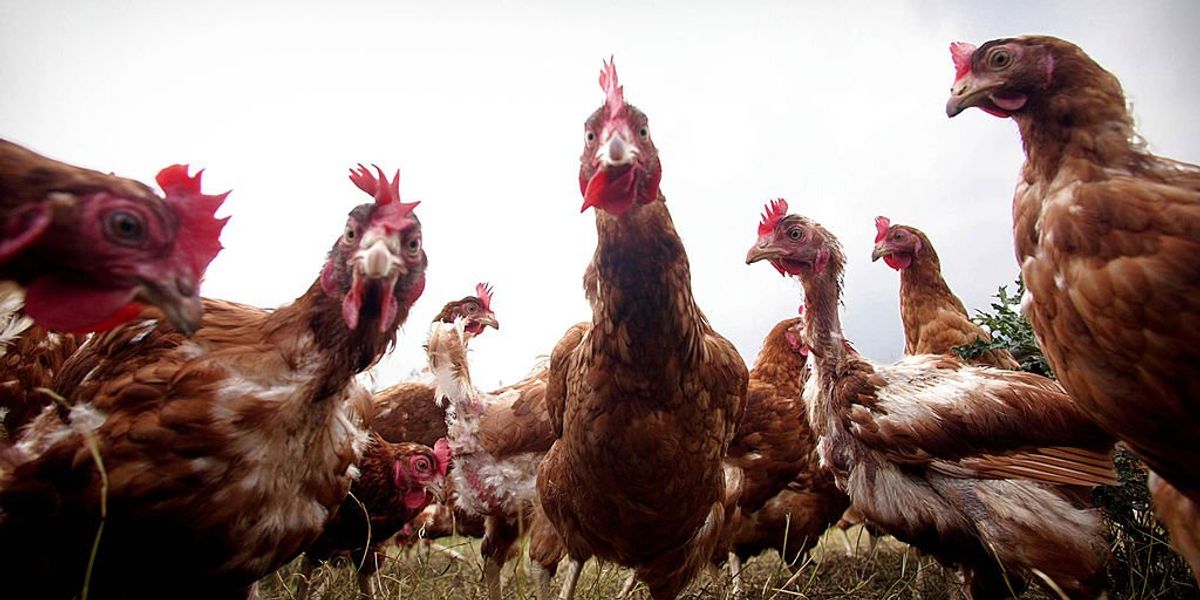

Egg prices fell almost 13% last month, but the cost is still sky-high for most consumers, averaging out at $5.12 a dozen. Worse, the USDA expects eggs to rise by up to 54% this year.
Bird flu is one reason for egg price hikes, but it goes much deeper than that.
Mercy for Animals wants to find an indirect route to eliminate natural eggs altogether and lead consumers to plant-based synthetic egg alternatives.
Especially in blue states like California, where strict regulations are pushing prices up, including on pork products.
A hidden tax
In particular, California’s Proposition 12 has forced non-California farmers to rebuild bigger barns for their chickens and raise pigs in larger pastures in order to be permitted to sell their eggs and pork products like bacon in California’s large market.
“It’s actually a hidden food tax that most don’t know about,” explains Will Coggin, research director with the Center for the Environment and Welfare.
A February survey by Country Financial found that 88% of Americans are worried about high food prices and have changed how they shop, including eating fewer eggs.
Farmers from Iowa to North Carolina are absorbing high costs to renovate and build new barns in order to have access to California’s market, pushing the national egg price average up and stopping a return to normal. California represents around 13% of the national market for eggs.
“Many farmers are stuck between a rock and a hard place. States shouldn’t be able to overreach into other states’ agricultural practices,” Coggin says, adding that a rollback of Prop 12 “could be worked into the farm bill passed by the end of September.”
... and a hidden agenda
Prop 12 bans common animal housing and is funded by an animal rights group called Mercy for Animals. In particular, it calls for hens to have time outside cages and for cages to be at least 144 square inches per hen.
Founded in 1999 by fifth-generation farmer turned radical animal rights activist Milo Runkle, MFA ultimately seeks to eliminate natural eggs altogether and lead consumers to plant-based synthetic egg alternatives.
Similar measures to Prop 12 are also being pushed forward in states like Washington and Oregon as well as Michigan and Colorado.
Agriculture Secretary Brooke Rollins has spoken out against Prop 12 and is joined by CEW’s campaign to urge Congress to nullify Prop 12. It’s worth noting that national egg prices have spiked 103% since Prop 12 went into effect in 2022. In California itself, eggs have gone up 300% in price in that time and pork products have soared up to 40%.
With the current food price crisis affecting eggs and many staples, buying eggs closer to home or raising your own hens is also an increasingly viable choice for many Americans looking to get better options than overpriced eggs at the local supermarket.
Sourcing local eggs
There are many advantages to buying eggs locally. Although the price isn’t necessarily lower, the freshness and quality of the eggs are generally better and the consumer supports local farmers and leaves a smaller environmental footprint.
Visiting a local farmers’ market or farm stands is a great way to start. Another option is to join a local food co-op or box program where produce, eggs, and meat can be delivered to you on a weekly or biweekly basis.
What about raising your own chickens?
Raising your own chickens is becoming an increasingly popular option for Americans with the yard space and zoning allowance. Legally raising hens depends on local regulations and depends on each local jurisdiction, although even cities like Philadelphia, where it is illegal, have almost 12,000 backyard chickens being raised.
Raising chickens on your property has been normal for centuries, although over-regulation in some areas has made it trickier. After checking whether you can raise backyard chickens, it’s time to get to the specifics.
- Buy healthy egg-laying chicks such as Isa Browns, Red Silkies, or other heritage breeds from your local farm store or a private seller online or in person. Not only do these breeds provide delicious eggs, they tend to be hardier in terms of health and standing up to weather.
- Ensure clean hygiene and keep chickens away from other wild birds in the area. Monitor the health of your cluckers and make sure they’re doing well. Hens will start producing eggs at around 24 weeks old.
- Build a simple chicken coop using two-by-fours, plywood, and chicken wire. You will want about four feet square per chicken in the henhouse and a chicken run attached to it where they can walk around. Chopped-up straw, recycled paper, or coarse sand makes an ideal floor surface for the coop.
- Make sure your chickens have enough food and water and check them every morning for eggs. Using a hanging feeder and waterer is a good option. Adding a drop of apple cider vinegar to their water helps prevent bacterial infections. The cost of a 50-pound bag of chicken feed runs about $25 and should last six chickens around a month.
- Eggs stay fresh outdoors for up to two weeks, but it’s best to collect them daily. Washing the eggs removes the protective biofilm, however, so they should be refrigerated immediately after.
For more comprehensive instruction, turn to YouTube. Shady Homestead's Cory Shade offers a particularly useful guide.
Is becoming a backyard Frank Perdue harder than it looks? Probably. It's never a good idea to underestimate the time, money, and effort these things require.
Then again, compared to the price of a year's worth of supermarket eggs these days, what you spend on your own operation may end up being so much chicken feed.
.png)
 4 hours ago
5
4 hours ago
5















 English (US)
English (US)